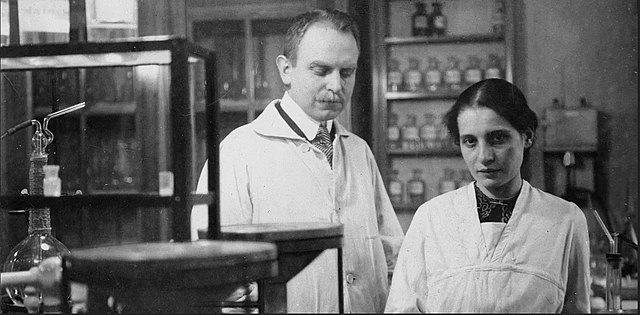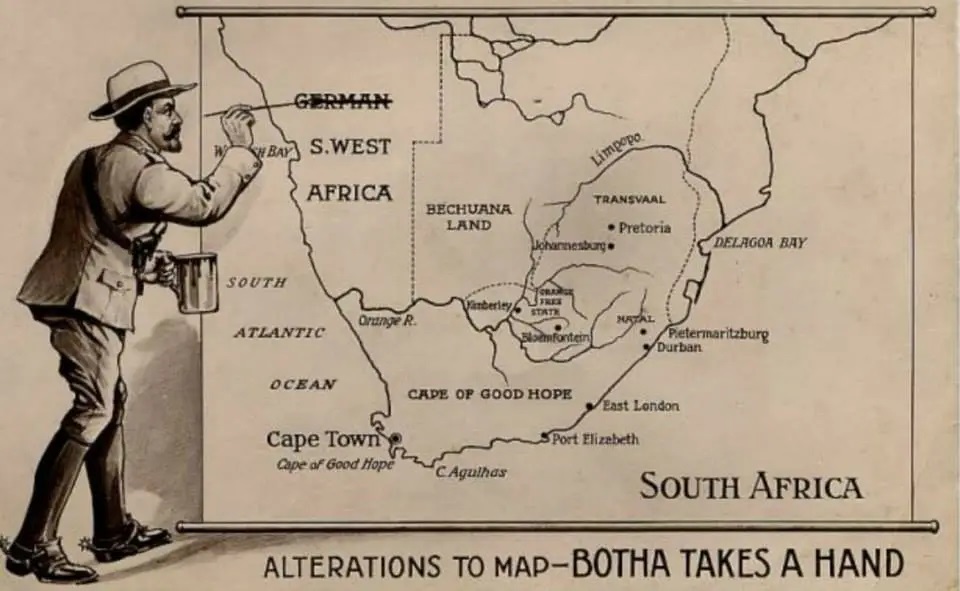
by David Levinson
The passing of a great
As I sat down to write this article, I heard the news of the death of Lise Meitner. If that name isn’t familiar to you, it should be. Einstein once called her “the German Marie Curie,” which might be understating things. She is arguably the most important woman physicist of the 20th century and possibly one of the most important theoretical physicists, period.
Born in Vienna in 1878, she became only the second woman to earn a doctorate in physics from the University of Vienna in 1905. She later moved to Germany and worked at the University of Berlin. There, she and Otto Hahn discovered the most stable isotope of the element protactinium, which she dubbed protoactinium before dropping the second “o.” In 1939, she and Hahn, along with Otto Robert Frisch and Fritz Strassmann, discovered and explained nuclear fission. There are also at least two nuclear phenomena which bear her name.
 Otto Hahn and Lise Meitner circa 1912.
Otto Hahn and Lise Meitner circa 1912.
Meitner was able to escape Nazi Germany in 1938 with the help of Niels Bohr. She settled in Sweden, where she spent the rest of her professional life. Her role in the discovery of nuclear fission garnered her a lot of celebrity after the end of the War; she was even interviewed by Eleanor Roosevelt on her radio show. She was a popular speaker and instructor and traveled extensively to the United States, the United Kingdom, and Germany.
She received numerous accolades throughout her career, and the institute that oversees Germany’s first research nuclear reactor bears her and Hahn’s names. But the Nobel eluded her. Otto Hahn was awarded the Nobel Prize for Chemistry in 1944 for the discovery of nuclear fission (ignoring not only Meitner, but also Frisch and Strassmann). The Nobel committee plays things pretty close to the vest, but word is that Lise Meitner was nominated many times in the fields of physicist and chemistry. In 1966, President Johnson honored her with the Enrico Fermi Award.
After retiring in 1960, she moved to the United Kingdom to be closer to family and continued giving lectures. She was in poor health in recent years, unable to attend the Fermi Award ceremony. She died in her sleep at the age of 89.
 Lise Meitner in 1963.
Lise Meitner in 1963.
Stereotypes
As Lise Meitner’s life shows, women play an active and important role in science, and ought to do so in science fiction as well. Unfortunately, there seem to be fewer women writing SF than there were a decade ago, and there don’t seem to be all that many as key characters in stories either. Two of the stories in this month’s IF don’t have any, two offer mothers, two more femmes fatale, and as far as the first story goes, the less said the better.
 A previously unknown piece by the late Hannes Bok, probably the last new Bok cover ever.
A previously unknown piece by the late Hannes Bok, probably the last new Bok cover ever.
Continue reading [November 2, 1968] Role Models (December 1968 IF)

![[November 2, 1968] Role Models (December 1968 <i>IF</i>)](https://galacticjourney.org/wp-content/uploads/2023/10/IF-1968-12-Cover-672x372.jpg)
![[July 2, 1968] What’s the Point? (August 1968 <i>IF</i>)](https://galacticjourney.org/wp-content/uploads/2023/06/IF-1968-08-Cover-505x372.jpg)
 A political cartoon from after the First World War.
A political cartoon from after the First World War. Sam Nujoma (r.), President of SWAPO, shakes hands with Mostafa Rateb Abdel-Wahab, President of the Council for Namibia
Sam Nujoma (r.), President of SWAPO, shakes hands with Mostafa Rateb Abdel-Wahab, President of the Council for Namibia Supposedly for Rogue Star, which doesn’t have a starship crash. Or this many characters. Art by Chaffee
Supposedly for Rogue Star, which doesn’t have a starship crash. Or this many characters. Art by Chaffee![[May 2, 1968] The Thing with Feathers (June 1968 <i>IF</i>)](https://galacticjourney.org/wp-content/uploads/2023/04/IF-Cover-1968-06-672x372.jpg)
 l. New Governor-General Banja Tejan Sie. r. New Prime Minister Siaka Stevens.
l. New Governor-General Banja Tejan Sie. r. New Prime Minister Siaka Stevens. No one has ever seen the prison of Brass from the outside. Art by Vaughn Bodé
No one has ever seen the prison of Brass from the outside. Art by Vaughn Bodé![[March 2, 1968] Rules and Regulations (April 1968 <i>IF</i>)](https://galacticjourney.org/wp-content/uploads/2023/02/IF-1968-04-Cover-639x372.jpg)
 The stars of the show. (l.) Jean-Claude Killy sporting his medals. (r.) Peggy Fleming in her spectacular performance.
The stars of the show. (l.) Jean-Claude Killy sporting his medals. (r.) Peggy Fleming in her spectacular performance. The Advanced Guard prepare to study the fauna of Chryseis. Art by Vaughn Bodé
The Advanced Guard prepare to study the fauna of Chryseis. Art by Vaughn Bodé